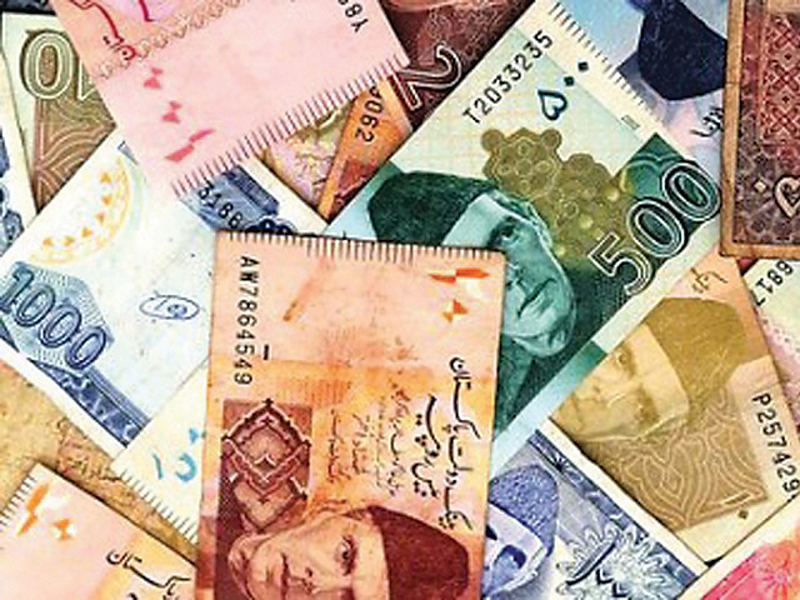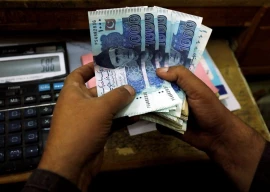
The tax collection remained at just Rs3.4 trillion till Friday, as the government is expected to face a record shortfall of around Rs220 billion during the first half of the fiscal year due to contractionary economic policies, exemptions to traders and legally questionable revenue measures.
Against the July-December target of Rs3.65 trillion, the Federal Board of Revenue collected Rs3.4 trillion as of Friday–falling short of the goal by a record margin ever.
However, foreseeing record slippages, the government has forced the commercial banks and tax offices to remain open on Saturday –a holiday –and now it expects to enhance the collection by another Rs20 billion to Rs25 billion. This includes roughly Rs8.5 billion payment by the Government Holding Company, including payment of super tax, which the Sindh High Court has struck down.
Against the monthly target of whopping Rs965.2 billion, the FBR could pool Rs713 billion till Friday – creating a hole that the tax authorities believe they will be able to fill in the second half. But it can give ammunition to the International Monetary Fund for forcing Pakistan to impose additional tax measures. Some in FBR believe that they would be able to increase the monthly collection to Rs740 billion by Saturday evening.
Still around Rs220 billion in shortfalls in collection will expose the government to new pressures, as this will adversely impact the first half primary budget surplus target.
The FBR fell short of the target due to a combination of reasons, to be blamed on its faulty tax planning, poor state of the economy that compelled the government to choke economic growth and giving tax exemptions to the traders.
The economy is projected to grow only 2% but inflation is hovering around 25%, playing a key role in enhanced tax collection after income tax receipts.
The most remarkable growth was in the income tax collection, which grew nearly half during the first half despite key tax measures not played. A major factor was additional income tax measures introduced in the budget.
As per provisional figures, Rs3.4 trillion was collected against Rs2.92 trillion in the corresponding period of previous year, an increase of over 16.5%, according to the FBR officials. But the growth was below the prevailing 25% inflation, which the FBR needs to address.
The FBR has also issued refunds to the tune of Rs175.5 billion against Rs149 billion the last year.
The provisional tax collection for December 2022 came in at Rs713 billion, which showed an increase of 19% over the collection of Rs601 billion in December 2021, according to the FBR.
Tax authorities need to collect Rs7.470 trillion in the current fiscal year, which requires 21% growth over taxes received in the previous year. In the FY23 budget, the government has imposed over Rs1 trillion in additional taxes on account of petroleum levy, income tax, sales tax and federal excise duty.
The collection of customs duty remained below target for the sixth consecutive month. The FBR collected Rs465 billion in customs duty, which was even lower than last year’s level.
In the month of December, the FBR collected Rs82 billion in custom duties –missing the target by Rs24 billion. Another Rs3 billion custom duty collection is expected on Saturday (today). The monthly collection was also 10% lower than the previous month.
It was mainly due to the restrictions imposed on imports, which contracted over 20% in the current fiscal year. The share in total taxes at the import stage has dropped below 43% to Rs1.44 trillion, due to increase in income tax collection and contraction in imports.
The income tax collection in six months amounted to Rs1.5 trillion, up by Rs481 billion or 48%. However, the collection was short of the target by Rs44 billion. This was because of legally questionable taxation measures, like deemed income tax on the real estate and 10% super tax on the companies and individual’s previous fiscal year income.
The Sindh High Court has struck down the super tax but still the government forced the publicly listed state-owned companies like the OGDCL to pay the super tax. This should be investigated by the Securities and Exchange Commission of Pakistan, as it is the money of the shareholders.
In the month of December, the FBR collected Rs401 billion in income taxes –missing the monthly target by a record Rs145 billion due to faulty tax measures. There was hardly Rs235 million collection of capital value tax on the overseas assets –another wrong tax measure. Still, the FBR showed 55% increase in the income tax collection on a month-on-month basis.
Sales tax collection amounted to only Rs1.27 trillion in six months, Rs5 billion less than the comparative period of the last fiscal year. This is a major failure of the FBR that is not able to reap the benefit of 25% inflation rate in the country. FBR lacks sales tax experts in its strong 21,000 workforce.
The FBR missed the six-month sales tax collection target by Rs106 billion. In the month of December, the FBR pooled Rs202 billion in the sales tax head, missing the monthly target by Rs71 billion. The monthly collection was also negative by 11%.
The federal excise duty collection stood at Rs164 billion –missing the six-month target by Rs16 billion. The collection was higher by 12% compared with the excise duty revenues during the same period of the last fiscal year. The FBR missed the monthly excise duty target by Rs13 billion.



1719660634-1/BeFunky-collage-nicole-(1)1719660634-1-165x106.webp)

1732276540-0/kim-(10)1732276540-0-165x106.webp)















COMMENTS (1)
Comments are moderated and generally will be posted if they are on-topic and not abusive.
For more information, please see our Comments FAQ